Adapted from MetaParshiyot 5755 by R David Wolfe-Blank
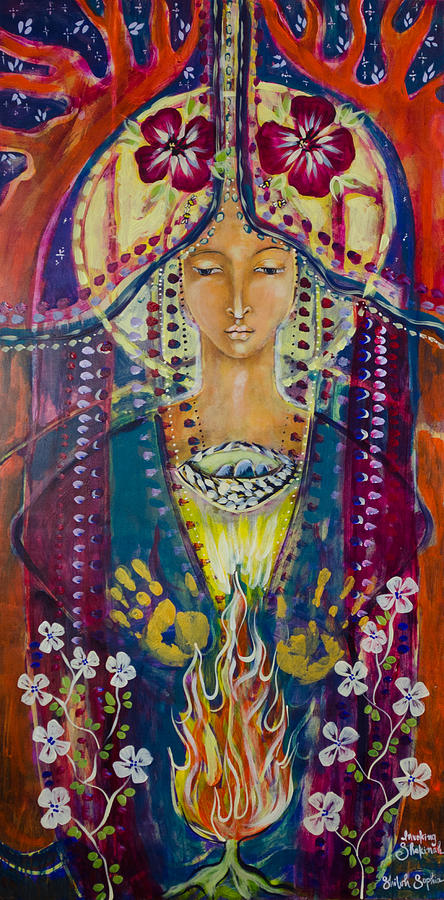
SYNOPSIS
Moshe had been in the desert, leading the nation of Israel for almost forty years. In this Torah portion, they stand at the edge of the Jordan river, readying to enter The Promised Land.
D’varim is Moshe’s ethical will. He considers lessons learned, decisions made and their impact, and highlights of the past 40-plus years. Interweaved in his words, we find yearning, passion, and regret. Sadly, Moshe will not enter the promised land. He gives over words of wisdom for the next generation who will enter. We can learn what is essential to Moshe by means of these words, what he says, and what he does not say.
This long and poetic speech is full of hints of incidents that are gently referenced only by the names of the locations where they occurred. Moshe recounts the significant passages of the journeying from Mount Sinai through the episode of the spies’ negative report, right up to his final commands to Joshua. The episode of the Golden Calf is not mentioned.
LESSONS LEARNED
DELATION OF DUTIES
Early on, Moshe recalls the decision made to delegate authority. The tribes chose leaders for themselves. who were known to be wise, understanding, and recognized. Even so, the challenge (and the blessing) with delegating is that Moshe is no longer “hands-on” with all the details. Consequently, he reminds the community that everyone deserves a fair trial; Yisrael people, wealthy, and impoverished alike. Even those not part of the community were to be treated fairly. Moshe would still hear cases escalated up to him.
SPIES
The tribal community moved from Horeb to Kadesh Barnea. It was there that the people, anticipating entering The Holy Land, suggested sending spies to view the territory. Each tribe designated one spy, and Moshe approved of each of them. The formerly enslaved people exercised their newfound authority in this way.
Sadly, the scouting did not go as expected. They were intimidated and overwhelmed by the giant people and strong fortresses.
The people, influenced by the spies, seemed to forget about Havayah’s ongoing Presence in their lives. Can you imagine what it was like, being led by The Divine Cloud by day and fire by night? Food descended from the heavens six days out of seven, and on the sixth day, two portions were provided.
The result seems harsh, and yet, it is pragmatic. No one from the slave generation would enter the promised land. The Promised Land would be given to the next generation. The slave people thought they would enter The Land of Milk and Honey, yet, they would not. Moshe’s experience, it seems he must have been deeply disappointed to be directed to wander the desert for forty years. He expected to lead his community into their new world.
SLAVERY AND ITS IMPACT
Sadly, centuries of slavery leave scars. Patterns develop to allow survival. Consequently, even when the community is wholly removed from its taskmasters, it takes time to cultivate and grow into freedom. We see this by Torah expressing the need for the next generation to inhabit the land.
Sadly, this is not true of the generations of Africans and people of color. These individuals were forcibly transported to the Americas and sold into slavery. Centuries late, they were released. Too often, these “freed” people would end up working for the same people who had previously owned them. There was no relief. It is a systemic problem in the United States that continues to this day.
Time, sustenance, and freedom are needed time to release slave consciousness. Everything manifests at the right time. Indeed, the Yisrael people were not ready to enter and conquer the promised land when they sent the spies to check out The Promised Land. Sadly, those who endured slavery in Mitzrayim did not have the chance to enjoy the new riches and way of life. Sadly, neither did Moshe Rabeiynu (Moshe, our teacher). It is not their fault; instead, it is the consequence of the situation, nature of humanity, and life on Earth.
VISIONING THE FUTURE
It is valuable and powerful to consider situations, where they are, and how they are likely to unfold. It is a way of seeing the future – not by magic, but by contemplation and reading the signals. Thankfully this is good old common sense and worth cultivating—everyone to their level. Vision allows us to adjust our behavior and expectations to stack the deck in favor of the desired result.
SHABBAT HAZON – SHABBAT OF VISION
This Shabbat coincides with Tisha B’Av. I find that the harshness of Tisha B’Av dissipates and is softened as a result of coinciding with Shabbat. Since Tisha B’Av is commemorated the day after Shabbat, this Shabbat is Shabbat Hazon, the Shabbat of vision. To be clear, the Shabbat before Tisha B’Av takes this name. This powerful title suggests that an extra level of psychic insight is readily available on this Shabbat to those who look and can see.
Tisha B’Av
It was Shabbat Tisha B’Av 5755/1995 that I fell off my bicycle on mile 49 of a 50-mile ride and suffered a head injury. I could have died or been compromised for a long time. I was forced to take time off from work. As a product of Yeshiva, I had largely disengaged from Jewish practice at that time as I was deeply involved in the corporate world.
The time off from work gave me a chance to follow a yearning deep in my heart- to learn Judaism’s mystical traditions – “Kabbalah.” I began by studying Sefer Yetzirah with the commentary attributed to the Rivaad with Rabbi Jonathan Omer-man at Metivta. Through this learning, I witnessed a face of The Holy One I wanted to know better – for the first time. I could learn how to “meet” and engage with Presence. The text is mainly universal and continues to inform me to this day.
If it were not for that bicycle accident, I might never have entered into the abundant treasures of Jewish practice. It is hard to imagine my life today without the wonder of tracking with Divine Presence day to day. I am incredibly grateful for freedom of choice. What looked like a life-threatening tragedy at the time was a life-altering blessing.
What seemed like tragedy transformed into a wonder-filled blessing.
CULTIVATING FAITH
Torah tells us the People of Yisrael’s 40-year detour in the desert resulted from not having trust.
When I fell from my bicycle, I could not return to work for a time. Thankfully, I was forced to pause. Over time a new reality made itself known to me.
When things look terrible and tangled up, allowing the matter to play out can bring blessings beyond our wildest imagination. Submitting to challenges beyond our control requires faith and trust. Curiosity helps a lot.
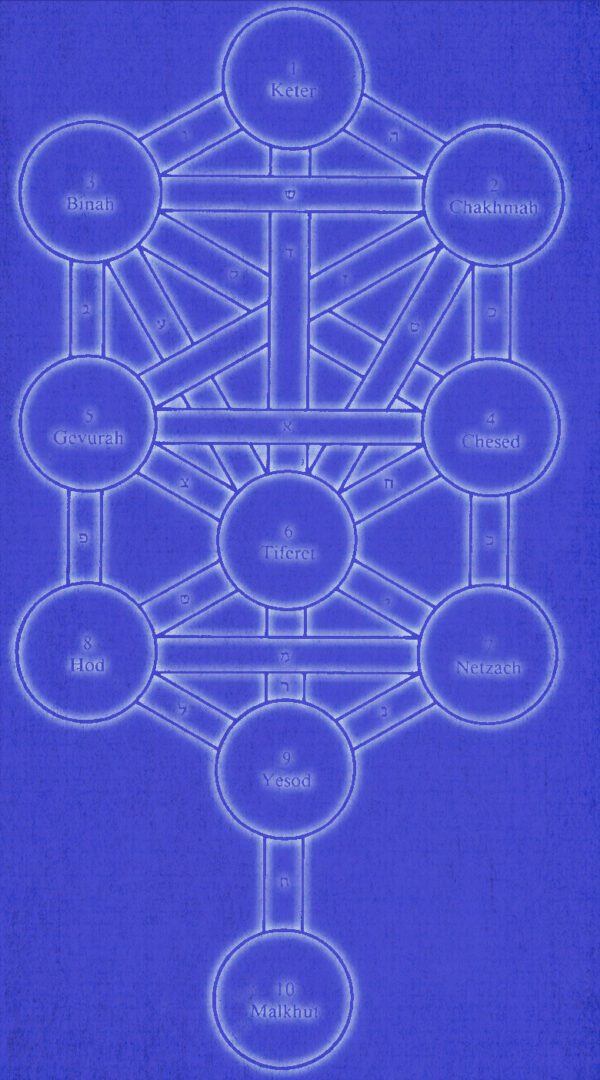
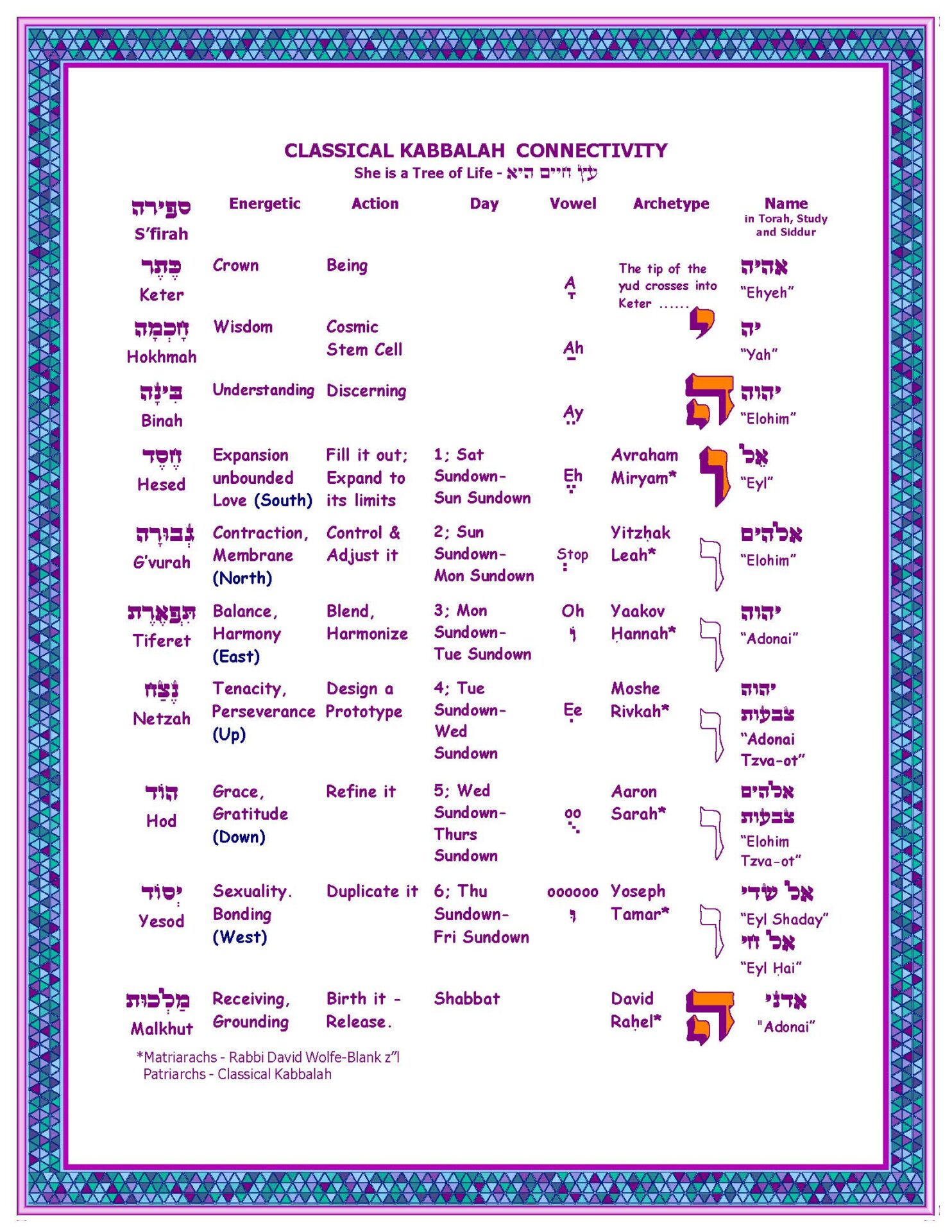
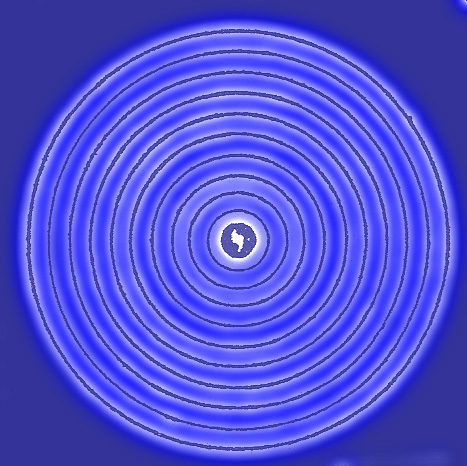
D’VARIM COUNTS NETZAH IN YESOD – LONGEVITY IN INTIMACY
Moshe Rabeinu (Our Teacher) is associated with the S’firah of Netzah. The book of D’varim is one of the Five Books of Torah and is a foundational part of Jewish tradition. Therefore, it holds an aspect of Yesod.
D’varim is Moshe’s ethical will. (An ethical will in itself is an aspect of Netzah in Yesod.) In it, Moshe gives over intimate and foundational (Yesod) details meant to sustain (Netzah) the generations to follow. Interestingly, it is also a window into Moshe’s experience.
In this Torah portion, Moshe‘s opening of his book long speech (a marvel of Netzah in Yesod) includes mild forms of rebuke.
He reminded the people about the issue of the spies’ reports and the people’s response to it, which revealed they were not ready to take to enter The Promised Land. It reminds us to cultivate ourselves physically, emotionally, intellectually, and spiritually to root and sustain.
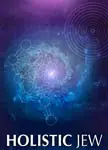

Thank you so much for your enlightening explanation of what this Shabbat and the parshah tells us.
Hi Judith, I am glad this Torah resonates with you. It has been fun writing weekly this year. It is almost over. Shana Tovah, What are your plans for the holiday?